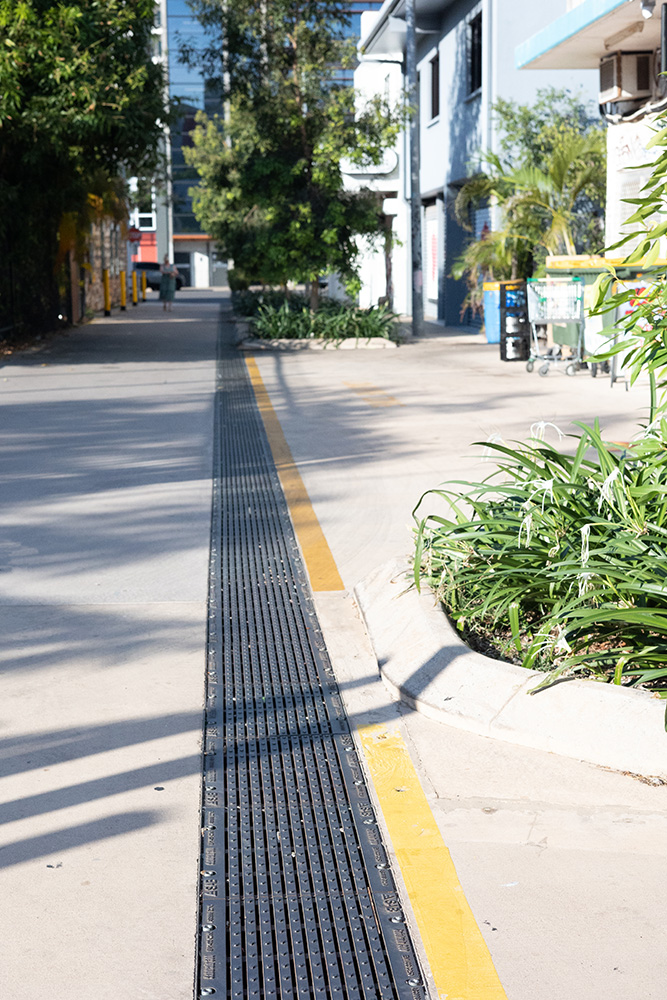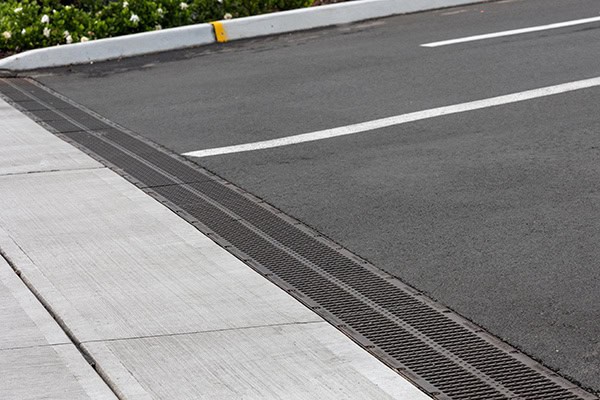There are two conditions that cause cast iron to rust are:
- Moisture (cast iron will begin to patina when the relative humanity exceeds about 64%)
- Oxygen
Factors that accelerate rusting:
- Carbon Dioxide
- Acids
- Impurities
Like most metals, cast iron undergoes a natural oxidation process, resulting in an outer protective coating known as rust. This process is called 'patina'.
Patina is a naturally occurring process and should not be confused with corrosive rust. Patina is good for iron as it provides a protective layer, as it is a thin layer of oxides on the surface that acts to slow down further corrosion. Therefore patina on cast iron grates does not harm the structural integrity. This 'rust' layer shields the cast iron from further oxidation. Think of rust as a corroded armour that protects against additional corrosion. This property allows iron to remain strong & intact for several decades. Unlike steel, cast iron is durable and will not flake. The patination of cast iron grates is predictable & the duration of each stage depends on local moisture conditions, foot traffic, foreign substances etc.
Once the oxidation process begins, cast iron will turn a bright orange then fade to a chocolate brown, similar to the colour of manhole covers.


Preventing Rust
Patina cannot be prevented but the process may be slowed by applying various coatings or treatments to create a barrier between the metal and environmental factors.
- PaintApplying a high quality rust resistant paint specificaly formulated for surfaces. Make sure to clean and prime the surface before painting for better adhesion & durability.
- Clear CoatingsClear coatings such as polyurethane or acrylic sealants can be applied to the surface to protect it from moisture and oxygen
- Oil or WaxApplying a thin layer of oil or wax can create a barrier against moisture & oxygen, inhibiting oxidation. This requires regular reapplication to maintain effectiveness
- GalvanizationGalvanizing involves coating the iron with a layer of zinc, which provides excellent protection against corrosion. This process is commonly used in industrial applications but may not be practical for smaller scale projects due to cost & complexity.
- Powder CoatingPowder coating applies a dry powder to the surface and cures it with heat. This creates a durable & protective finish that can prevent patina formation.
- Linseed OilThe application of linseed oil can be effective to some extent. It acts as a barrier against moisture & oxygen, thus slowing down the oxidation process.
All advice in this article is of general nature, seek professional advice for tailored guidance